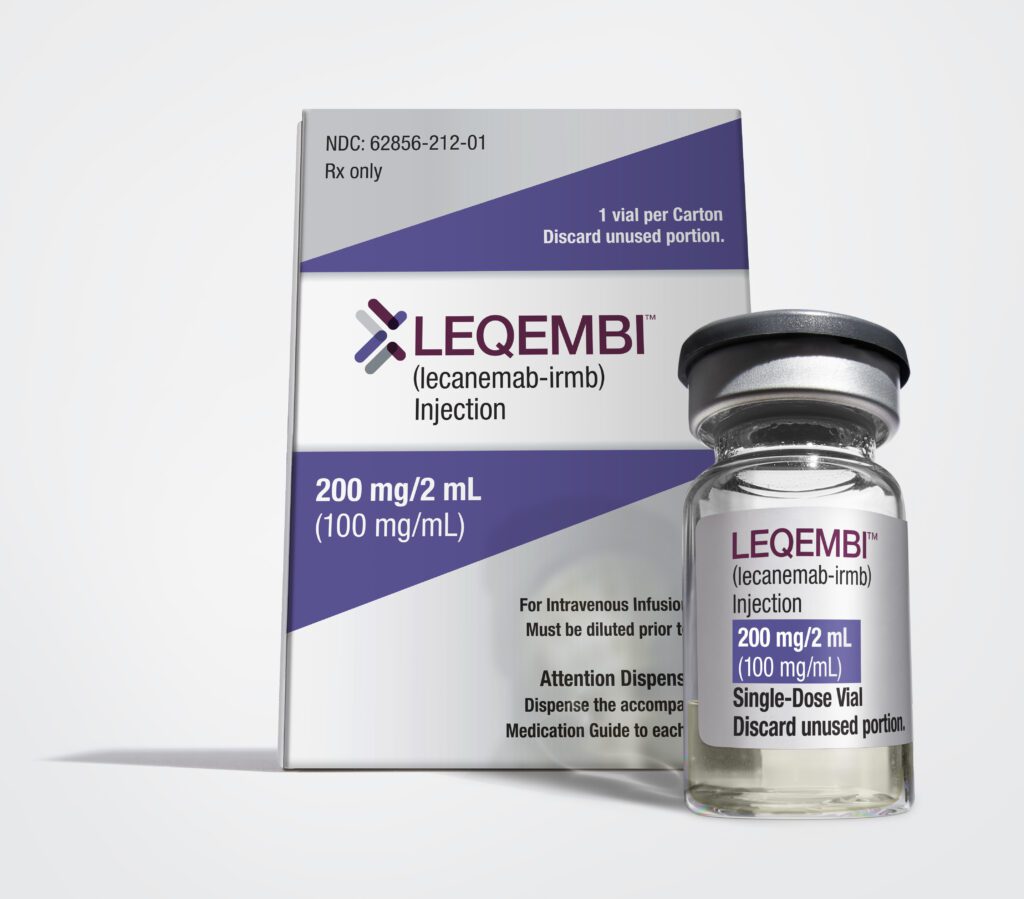The breakthrough Alzheimer’s drug LEQEMBI could receive traditional Food and Drug Administration (FDA) approval later this year after receiving Accelerated Approval in January.
Developed and manufactured by biotech companies Eisai and Biogen, LEQEMBI is one of two new Alzheimer’s drugs in 20 years. Both companies are members of the Biotechnology Innovation Organization (BIO).
“The U.S. Food and Drug Administration (FDA) has accepted Eisai’s supplemental Biologics License Application (sBLA) for LEQEMBI™ (lecanemab-irmb) 100 mg/mL injection for intravenous use, supporting the conversion of the accelerated approval of LEQEMBI to a traditional approval,” Eisai says in its press release.
The drug received Accelerated Approval from the FDA on Jan. 6 based on the secondary endpoint of reducing brain plaque. LEQEMBI has been granted a Priority Review for traditional approval “with a Prescription Drug User Fee Act (PDUFA) action date of July 6, 2023.” FDA says the drug achieved the primary endpoint of reducing memory decline in a clinical trial.
“Lecanemab slowed decline of cognitive function by 26% on ADAS-Cog14 and slowed disease progression by 24% on ADCOMS at 18 months,” the trial’s conclusion said. In addition, the drug “slowed the decline of activities of daily living by 37% on ADCS MCI-ADL at 18 months.”
The FDA plans to hold an Advisory Committee to discuss the application on a date to be announced.
First Medicare-covered Alzheimer’s treatment?
With traditional approval, more patients could access LEQEMBI because the drug could be the first new Alzheimer’s treatment covered by Medicare.
As Bio.News has reported, Accelerated Approval accelerates patient access to needed breakthroughs.
However, the Centers for Medicare & Medicaid Services (CMS) decided last year to limit coverage of another breakthrough Alzheimer’s drug, Biogen’s Aduhelm, to patients enrolled in clinical trials. In an unprecedented decision last April, CMS severely limited coverage of all FDA-approved treatments that target amyloid for Alzheimer’s disease that had not received traditional FDA approval, including lecanemab (LEQEMBI) and aducanumab (Aduhelm). As Bio.News reported at the time, the decision could chill innovation, particularly in a space like Alzheimer’s where innovation is sorely needed. Last month, CMS doubled down on its coverage decision, Good Day BIO reported.
According to BIO’s Chief Policy Officer John Murphy, “the rest of the market is left without any guidance from CMS as to when it will usurp the FDA’s scientific determinations,” causing “a demonstrably chilling impact on future innovations.”




